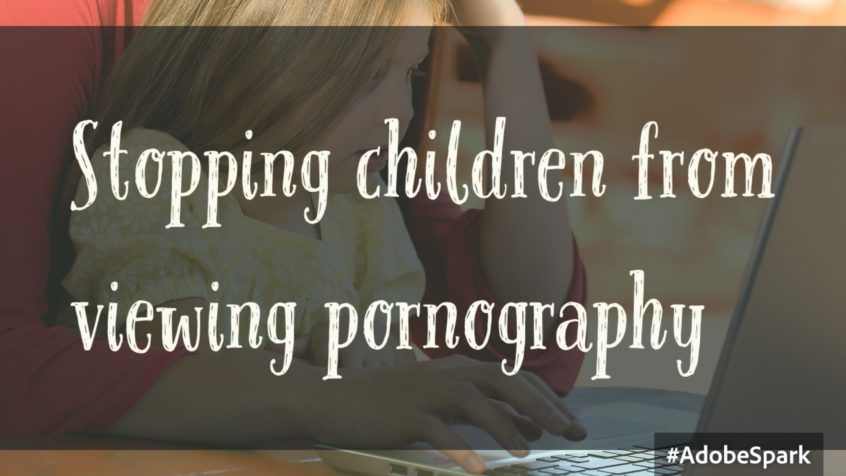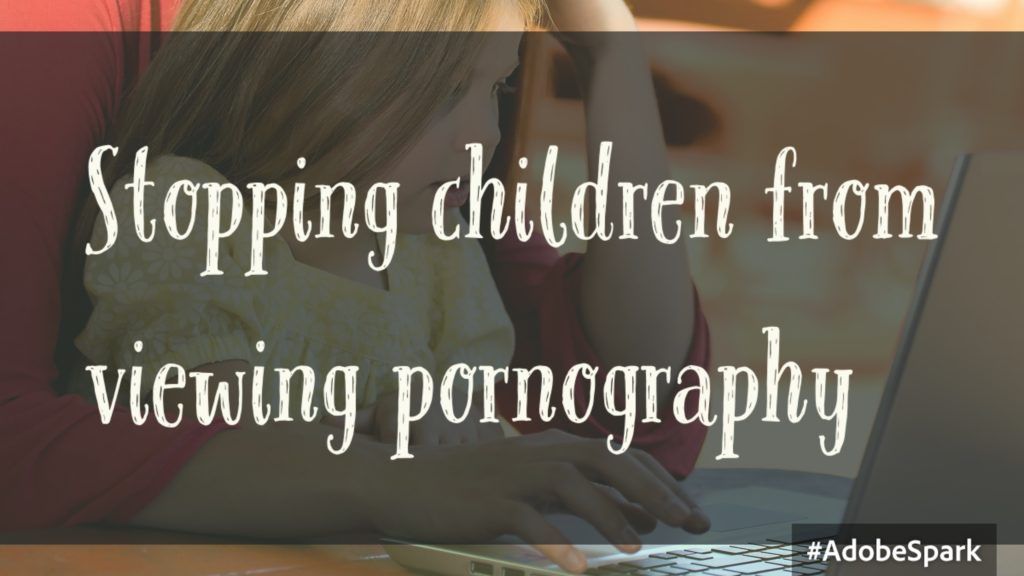Stopping children from viewing pornography

In one of our earlier posts, we have talked about viewing pornography and its legality in India. Statistically, In India, about 70% of the internet traffic comes from viewing pornography. Which means that a major chunk of the Indian population consumes pornographic content on regular basis. Surveys have also suggested that viewing pornography is a habit mostly carried out through mobile phones.
What is the U.K. doing to stop kids from viewing pornography?
The recent Digital Economy Bill has introduced a concept called Age Verification (AV) for users viewing pornography in the country. The law is aimed at introducing Age Verification for all websites and apps containing pornographic content. In order to facilitate this, the Government will team up with service providers, website owners and payment merchants as well.  The easy availability of pornography is constantly changing the way children and young people understand healthy relationships, sex, and consent. While it is true that every child has a right to develop at their own pace, it is sensible to think that exposing children to pornography at a young age can be very harmful. The United Kingdom already leads the world in online child protection. During the consultation process, all nodal agencies and the public welcomed this step.
The easy availability of pornography is constantly changing the way children and young people understand healthy relationships, sex, and consent. While it is true that every child has a right to develop at their own pace, it is sensible to think that exposing children to pornography at a young age can be very harmful. The United Kingdom already leads the world in online child protection. During the consultation process, all nodal agencies and the public welcomed this step.
It might also shock you, that the average time spent by a child per day on the internet has surpassed TV in the last 10 years (Ofcom). As internet users, we are all aware that how easy it is to get exposed to the pornographic content. Even if a child begins to download a song, he can end up on a pornographic website or an advertisement that is graphic. Indeed a great step has been taken by the UK Government. But what needs to be done in India is first, acknowledging the fact that pornography can be legal. We have only inferred from the laws that viewing pornography is legal, and selling/distributing isn’t. However, there is a huge amount of clarity needed and after that perhaps, even we can consider implementing smart technologies to restrict content and not a total ban.
Here is a list of questions answered in a fact sheet appended to the bill:
Most porn sites are based overseas, how will you enforce this law against these sites/companies?
The aim of our policy is to capture all sites, both foreign and domestic with a proportionate regulatory approach. We will focus on commercial providers of pornography. And ensure that the new legal requirement, and regulatory framework underpinning it, capture these.
What is the government doing to address the availability of “free” pornography sites?
It is absolutely our intention to capture all commercial sites that provide porn, whether this is paid for directly, or ‘free’ sites that are used as a ‘shop window’ for paid services.
Technology will always stay one step ahead of legislation, how will government future-proof this policy?
Our drafting will allow for flexibility and we will continue to work closely with industry to monitor progress and latest technological developments to ensure key growth areas such as “apps” are covered under the scope.
